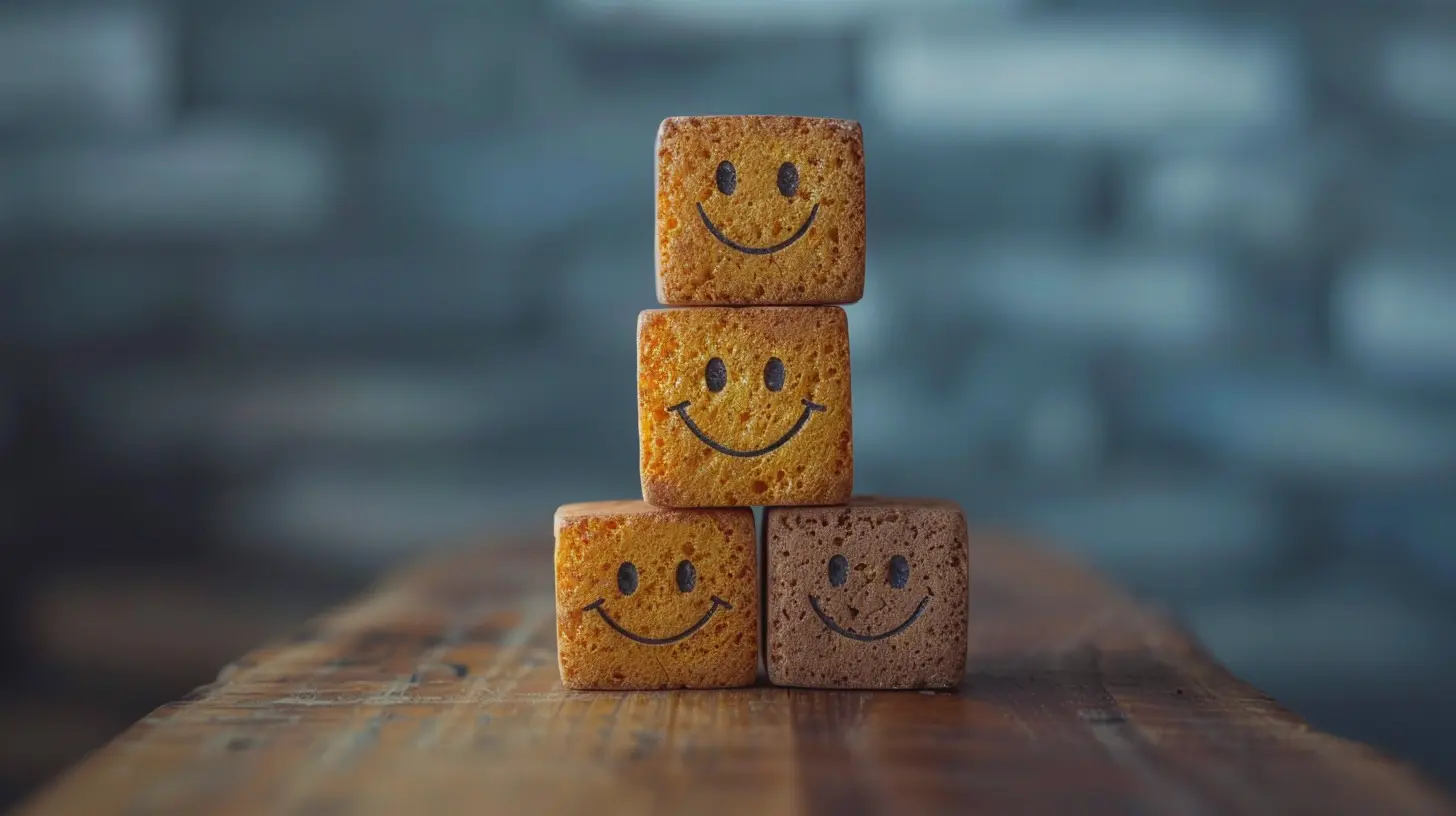Building Emotional Resilience for Long-Term Well-Being
11 October 2025
Let’s be honest for a hot second here—nobody wakes up thinking, "Today I’m gonna train my brain like an emotional Navy SEAL!" But maybe we should. Because life throws curveballs at us like it's playing Major League Baseball, and if you’re not emotionally resilient, even a minor mishap (like burning your toast) can feel like an existential crisis.
Now, we’re not saying you need to be a Zen monk who meditates on a mountaintop (though hey, more power to you if that’s your vibe). What we are saying is that emotional resilience—the ability to bounce back from stress, setbacks, and the general chaos of life—is something anyone can build, brick by emotional brick.
So buckle up, buttercup. We're diving into the nuts and bolts (with a splash of humor and a pinch of sarcasm) on building emotional resilience for long-term well-being. Let’s build that inner superhero cape, shall we?
What the Heck Is Emotional Resilience?
Picture this: Two people lose their jobs on the same day. One sulks for two months, still living in pajama bottoms, surviving on Cheetos. The other one cries for a bit, makes a plan, brushes off the metaphorical dust, and starts job hunting with hope and a fresh resume.The difference? Emotional resilience.
It’s not about not feeling pain, sadness, or stress. Nope, resilient folks just have the psychological superpowers to handle that hot mess in a healthy way. Think of it like emotional Teflon—problems don’t stick as long.
Why Should You Care? (Seriously, It’s Kind of a Big Deal)
Let’s put it this way: life is not a Pinterest board. It’s messy. There are traffic jams, bad hair days, and people who say “let’s circle back” unironically.If you want to not just survive but thrive in this chaos, building emotional resilience is key. Science even backs it up—resilient people enjoy better mental health, healthier relationships, and longer lifespans! It’s like quinoa for your soul.
The Myth of Being “Born Resilient”
Want a little secret? Emotional resilience is 100% buildable. You don’t have to win the genetic lottery. You’re not doomed if you cried during an ASPCA commercial (no judgment, we all have). Resilience is more like a muscle—if you work it, it grows.So stop thinking you’re either “tough” or “soft.” That’s outdated thinking, like VHS tapes and Myspace.
Step 1: Get Cozy With Your Emotions (Even the Ugly Ones)
You can’t build emotional resilience if your go-to reaction is shoving your feelings into a metaphorical box labeled “DO NOT OPEN.” Spoiler alert: those boxes always explode when you least expect it.Here’s What To Do:
- Feel the feels. Yes, even the icky ones. Sadness, anger, fear—they're not bad, just uncomfortable.- Name it to tame it. Saying “I feel anxious” or “I’m overwhelmed” helps you gain control. You’re not being anxiety—you’re experiencing it. Big difference.
- Write it down. Journaling is like emotional spring-cleaning for your brain.
When you face your emotions head-on like a rom-com protagonist charging through the airport, you begin to disarm them of their power.
Step 2: Self-Compassion—Because You Deserve It, Dang It
If you talk to yourself the way you talk to your dog ("You're amazing, look at you go!"), you'd be unstoppable. But most people talk to themselves like a broken record with a grudge.Stop that.
Self-compassion isn’t some woo-woo nonsense. It’s giving yourself the same kindness you’d give your BFF after they ugly cry over a breakup.
Try This:
- Switch your self-talk. Replace “I’m such a failure” with “I messed up, but I’m learning.”- Forgive yourself. Unless you’ve committed arson or stolen someone’s lunch from the office fridge, it’s okay to give yourself a break.
- Practice the “Best Friend Voice.” Ask yourself how you’d respond if your bestie came to you with the same problem.
Self-compassion is like an emotional safety net. You can fall, but you won’t splat.
Step 3: Build Your Mental Toolbox
Let’s bring out the metaphorical Home Depot cart—you need tools if you’re going to build anything, especially emotional strength.Resilience Tools Include:
- Mindfulness: No, you don’t have to go full yoga-guru. Being present, just here and now, can stop your brain from doing that spiral-of-doom thing.- Gratitude: It’s cheesy, yes. But gratitude rewires your brain’s focus from “everything sucks” to “some things don’t suck, actually.”
- Reframing: Stuck in traffic? Use the time to scream-sing your favorite song and pretend you’re in a music video.
The more tools you collect, the fewer meltdowns you'll experience over minor inconveniences (like someone using your coffee mug).
Step 4: Build a Tribe, Not a Lonely Island
You weren’t meant to go it alone. Even Batman had Alfred.Humans are social creatures, and emotional resilience is a team sport. Surrounding yourself with people who lift you up (and who know when to bring over tacos) is vital.
Your Support Circle Should:
- Listen without judgment- Offer encouragement instead of solutions (unless you ask)
- Be honest, but not brutal
And yes, that might mean saying a gentle buh-bye to toxic relationships that drain you like a phone battery on 2%.
Step 5: Embrace the Beautiful Mess
Life is messy. You’re going to fail, fall face-first into awkwardness, and make questionable decisions (looking at you, 2 a.m. online shopping spree).The key is to embrace the chaos, not avoid it. Resilient people aren’t indestructible—they just have the audacity to keep going despite the mess.
Pro Tips on Weathering Life’s Storms:
- Setbacks aren’t stop signs. They're just speed bumps with attitude.- Laugh. A lot. Humor is like Windex for emotional gunk—it makes everything clearer.
- Celebrate micro-wins. Got out of bed today? Victory. Drank water? Champion behavior.
Step 6: Practice Resilience Like It’s a Daily Workout
You don’t become emotionally resilient overnight. (If only there were a six-minute abs version for the soul, am I right?)You’ve got to practice resilience daily, like brushing your teeth or dodging spam calls.
Easy Daily Habits:
- Start the day with an intention (even if it's just “don’t yell at Greg in accounting”)- Take 10 mindful breaths during chaos
- Reflect each night on what you handled well (yes, surviving rush-hour counts)
Consistency is key. Think of it as emotional hygiene.
Step 7: Seek Help When You Need It (Therapists Are Not Just for “Crazy” Times)
Therapy is not a dirty word. It’s not a sign of weakness—it’s the emotional version of seeing a personal trainer. No shame in that game.Whether it’s friends, a coach, or a licensed therapist, asking for help is a power move, not a pity party.
The Long-Term Payoff: Peace of Mind, Baby
So what happens when you actually stick with it and build emotional resilience?Let’s paint the picture:
- You handle criticism without spiraling into self-doubt.
- A bad day no longer equals a bad life.
- You’re flexible, like emotional Play-Doh, bending without snapping.
More importantly, you begin to trust yourself. You become your own anchor in the storm. That, my friend, is emotional freedom—and that’s the secret to long-term well-being.
Final Thoughts: You’ve Got This (Seriously)
Building emotional resilience is like planting a garden. It takes time, patience, and probably killing a few metaphorical plants along the way. But with consistent care, you’ll grow something beautiful.So the next time life hits you with a metaphorical frying pan, remember: you’ve got the tools, the mindset, and the heart to bounce back—stronger, wiser, and maybe with a story hilarious enough for future dinner parties.
Go build that bounce-back muscle. You’re emotionally ripped already—you just don’t know it yet.
all images in this post were generated using AI tools
Category:
Healthy LifestyleAuthor:

Laura Hudson
Discussion
rate this article
1 comments
Norah Jennings
Great article! Building emotional resilience is such a vital skill for navigating life's ups and downs. I love the practical tips shared here—definitely going to start implementing them in my daily routine. Thank you!
November 2, 2025 at 4:14 AM

Laura Hudson
Thank you for your kind words! I'm glad you found the tips helpful. Best of luck on your journey to building emotional resilience!


